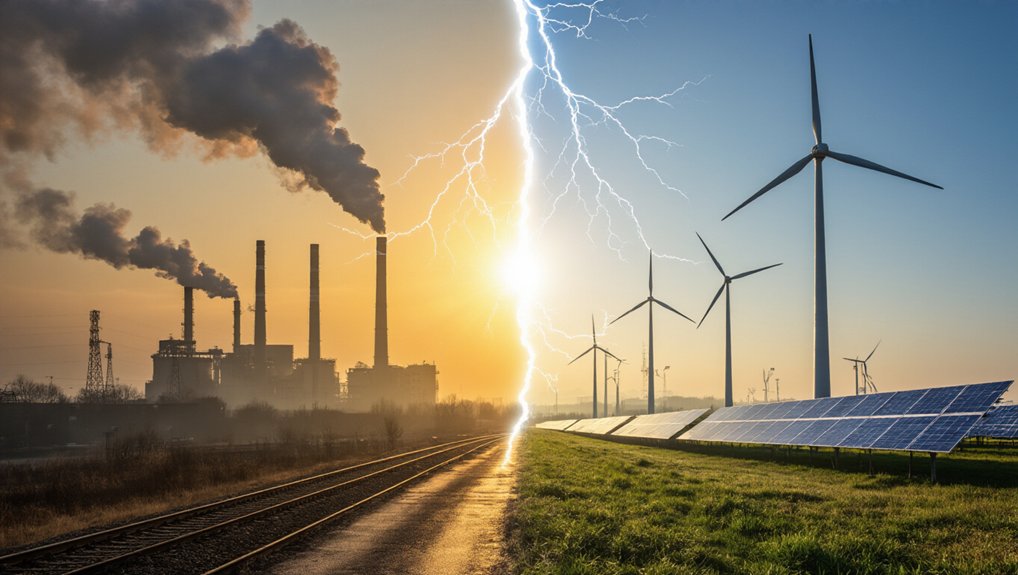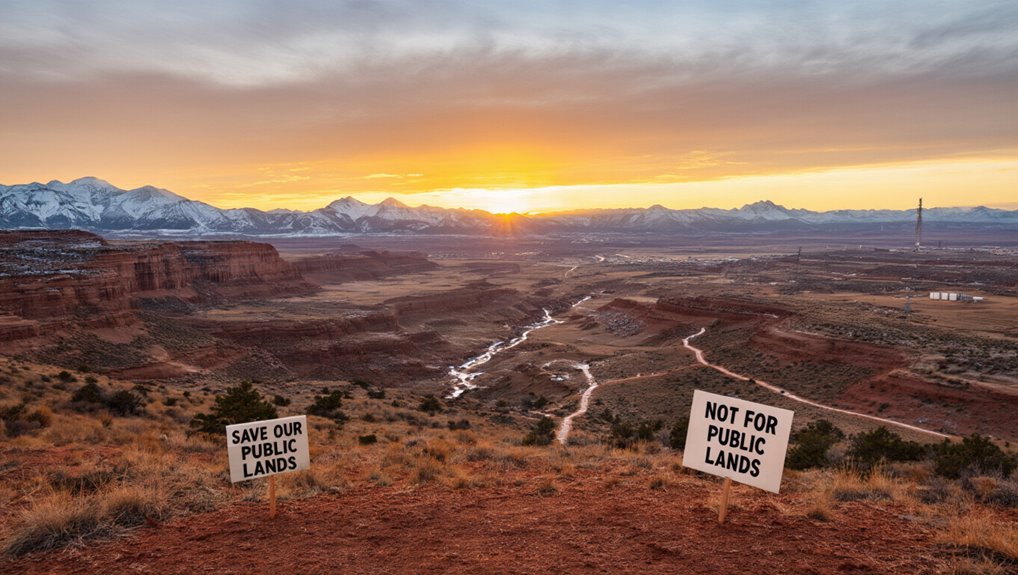Americans are over renewables. Support for solar dropped to 61%, wind’s at a dismal 48%. The kicker? Renewable energy just hit record highs, crushing coal for the first time. Republicans basically bailed on clean energy while Democrats keep pushing. It’s a full-blown culture war now. Reality check: renewables generated 40% of global electricity in 2024, but Americans are busy arguing about gas cars. The disconnect between what’s happening and what people think is wild.
While renewable energy keeps breaking production records, Americans are falling out of love with wind and solar power. The numbers tell a weird story. Clean power hit 40% of global electricity generation in 2024. Wind and solar crushed it with a record 17% of US electricity. Renewables even beat coal for the first time ever.
Yet somehow, fewer Americans want more of it. Here’s the kicker: only 61% of Americans support expanding solar power as of June 2025, according to Pew Research Center. Wind power? Even worse at 48%. These aren’t exactly inspiring numbers for an industry that’s supposedly the future. The drop happened fast, coinciding perfectly with Trump’s second term and his fossil fuel lovefest.
Only 61% of Americans support expanding solar—a stunning reversal for the supposed energy of tomorrow.
Republicans drove this shift. They’ve basically abandoned ship on renewables while Democrats still cling to their solar panels and wind turbines. The partisan split is getting ridiculous. Energy policy used to be about, you know, energy. Now it’s another culture war battlefield. Among younger Republicans aged 18-29, support for prioritizing renewable energy plunged from 67% to 51% last year.
Meanwhile, nuclear power is having a moment. Both parties are warming up to atom splitting, which is probably the most bipartisan thing happening in energy right now. Americans also prefer hybrids over full electric vehicles—45% versus 33%. Nobody wants to phase out gas cars by 2035 anymore. That ship has sailed.
Congress is busy fast-tracking oil and gas projects. They’re talking about cutting incentives for clean electricity. The Trump administration treats fossil fuels like they’re going extinct tomorrow. Which is ironic, considering the actual data. Despite the political rhetoric, installation costs for residential solar systems have become more affordable, typically ranging from $15,000 to $25,000 for home installations.
The Energy Information Administration projects renewable electricity will explode through 2050, growing from 2.57 quads to 13.92 quads. Coal’s heading for the dustbin of history. Data centers alone will need up to 44 gigawatts of new power by 2030. That’s a lot of juice. Industry experts like Kate Hardin at Deloitte focus on transportation decarbonization and its implications for both automotive and energy sectors, recognizing the massive shifts ahead.
Political theater aside, the numbers don’t lie. Renewables keep growing despite the popularity contest. Production records keep falling while public support wavers. It’s almost like reality and perception are having a divorce. The energy shift rolls on, whether Americans love it or not.
References
- https://www.pewresearch.org/science/2025/06/05/americans-views-on-energy-at-the-start-of-trumps-second-term/
- https://www2.deloitte.com/us/en/insights/industry/renewable-energy/renewable-energy-industry-outlook.html
- https://ember-energy.org/latest-insights/global-electricity-review-2025/
- https://ember-energy.org/latest-insights/us-electricity-2025-special-report/
- https://www.utilitydive.com/news/eia-outlook-renewables-energy-consumption/745601/









